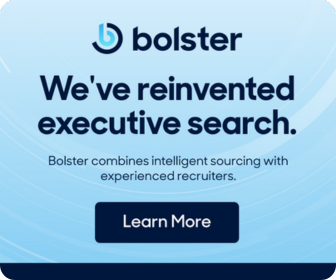
Startup Boards for CXO’s Series: Post 6 of 11
Depending on your situation, your first board meeting might actually be your second board meeting because in a prior post I strongly encouraged CEOs to be just as thorough in interviewing and onboarding a new board member as they would an executive hire. Part of that onboarding includes having them attend a board meeting in a trial run. If you’re not in that situation, if you’re basically onboarding yourself, then there are a few things you can do to accelerate your impact. It’s especially critical to get up to speed quickly as a board member because you don’t meet every week. Your board might only meet a few times a year and you can’t take the time to “learn the ropes.” You have to hit the ground running and become a fully functioning and contributing board member right away.
The key to being able to have an impact in your first meeting (and every meeting after that!) is to be as fully prepared as possible. While you can’t know everything walking in the door for the first time, you can know a few things really well. Here are my Top Six things to make sure you know or do before your first board meeting.
Understand the company’s financials. Probably the most important thing to know is the financial situation of the company. Foundry Group partner and long-time CEO Chris Moody has written some best practices for getting a board member up to speed and financial acumen is a key.
Make sure the new person is fully ramped on the financials before attending the first meeting as an official board member by walking them through the financials line-by-line. This isn’t just about reviewing the board deck in advance, but giving the new member an opportunity to ask dumb/basic questions before the first meeting.
It would be best to get the financials, and to go over the financials, and to be comfortable asking those dumb questions, with a knowledgeable person (ideally the CFO or CEO) before the first meeting, but if you’re unable to do that you can still catch up quickly. While a full course of “Startup Financials 101” would be enough material for a whole book, make sure you’re paying attention to cash burn, cash runway, understanding the cash flow dynamics of the business, revenue and/or bookings growth, and key customer adoption and retention metrics. Hopefully the company’s CEO and CFO are strong enough in their board presentation development that the most important things are easy to spot and understand.
Find a board buddy. I suggest that you find a “board buddy” in or before the first meeting and ask if someone will help you learn what’s going on and answer questions you might have and help teach you board member best practices from their perspective. Any existing board member could work for this, but try to pick someone who has been on a lot of boards over time like a VC so you can also get the benefit of that person’s longitudinal experience about the best and worst independent directors they’ve seen over time.
Learn the corporate structure and governance. You’ll also want to meet with the company’s corporate counsel (or CFO) to understand the legal structure and capitalization of the company. Which decisions require board approval? Which ones require shareholder approval? If the company gets acquired, how does the liquidation waterfall work? If you’re a first-time board member and haven’t gone to any formal training programs, make sure that you can spend some time with the company lawyer to get some training or materials on governance so that you understand the director’s fiduciary duties.
Meet the team. Another thing you can do, if it didn’t happen already during the interview process, is ask if you can meet briefly with each board member or senior executive in the company, or at least the people the board has regular interaction with. By building personal relationships with the other directors and with the executives, you’ll be able to understand multiple perspectives on the company and you’ll be a more informed and better board member. Like all relationships, these take time to build and cultivate, and like all teams, sometimes the collective work and thinking of a board happens in smaller groups or 1:1 interactions between formal board meetings. You should also ask for any org charts, bios of executives and other directors, along with their contact information. Get copies of past board minutes and read those before your first meeting. At some point (it doesn’t have to be before the first meeting) ask if you can even spend a day or two at the company’s office wandering around, meeting other employees and sitting in on various meetings like an executive team meeting or an all-hands meeting (or remote equivalents).
Get to know their product.. Unless the product is something you already use and are familiar with, have the product leaders give you a detailed demo and tour of the product.
Schedule extra check-ins with the CEO. I recommend calendaring pre- and post-game meetings with the CEO around your first 2-3 board meetings. Even quick, 15- or 30-minute informal chats to make sure you’re fully briefed before your initial meetings and have a chance to get and give feedback afterwards can go a long way to making your first few meetings successful.
It would be great if every board orientation had a well thought-out process for bringing new board members up to speed quickly and before their first meeting, but the reality is that not all companies have this in place. If you find yourself in a situation where you have to onboard yourself, don’t despair! Get as prepared as possible before your first meeting and be proactive in reaching out to the company executives and legal team to meet with you and get the quick overview and training that you need to make an immediate impact.
-Matt Blumberg, May 18, 2021
